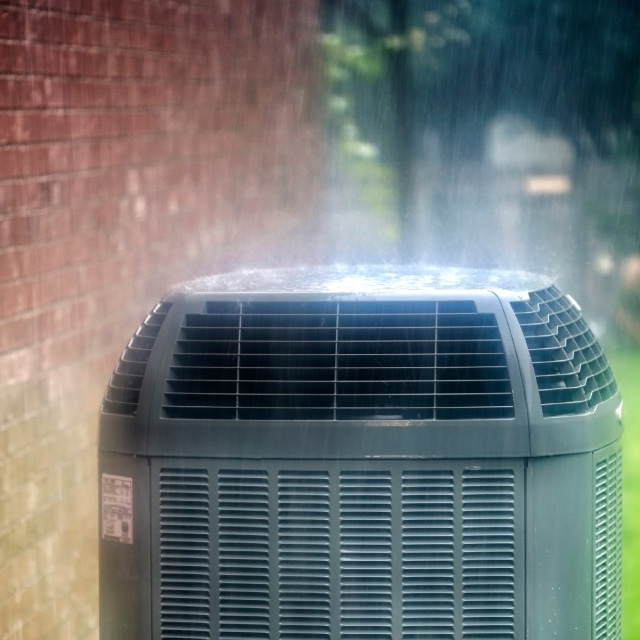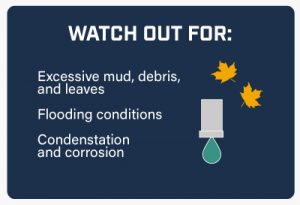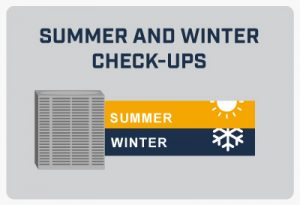
We are no strangers to rain in the Pacific Northwest. So, we know that both residential and commercial property owners might worry about their outdoor HVAC components during our wet season. Are you concerned about how damp weather affects your heating and cooling systems? Are you wondering if you should turn off your AC during rain storms? If you want to ensure your cooling and heating system withstands the elements, our HVAC contractors answer all your questions below.
How Does Rain Affect HVAC Systems?
Worrying about the effects of water on outdoor AC and heating units is expected in Oregon. Since HVAC systems are such necessary parts of our lives, nobody wants to be caught off-guard by a broken or damaged machine. Thankfully, Portland-metro rains aren’t extreme. On average, we only see about .01 inches per day. Plus, home and commercial air conditioning and heating units are built to withstand the elements. With this in mind, our typical rainy season won’t have a negative impact on your HVAC unit.
However, this doesn’t necessarily mean rain storms can’t cause harm to some components. That’s why protecting your heating and cooling components is essential to mitigate issues down the road.
How Do I Protect My HVAC from Rain?
While our average precipitation won’t damage your air conditioning or heating components, extreme weather and external factors can be a problem. If you are concerned about your system, here are crucial signs to watch out for:
- Excessive mud, debris, and leaves: If your outdoor unit is placed in an area that sees an accumulation of vegetation after a rainstorm, it could affect its function. Fallen branches, rocks, and other foreign objects can cause external damage. A build of dirt, mud, or leaves can block airflow, leading to an overworked HVAC system and stressed internal mechanisms.
After any atypical weather event, inspect your system for dirt, branches, and leaves. Make sure you clear the area of debris. If you see cracked or dented components, call our NATE-Certified technicians and schedule a consultation to book our professional repair services.
- Flooding conditions: A little bit of NW rain shouldn’t damage your unit. However, if you notice your system is partially or fully submerged under water, there might be some serious problems. Pooled water can damage internal wiring and mechanisms in your heat pump. It can also impede AC condenser coil and compressor functions.
If you observe your HVAC unit underwater, disconnect it from power right away. Then call a heating and cooling contractor to assess the situation. If you notice flooding as a common occurrence, you might want to consider relocating your unit to higher ground or switching to a rooftop option. - Condensation and corrosion: When the rains start, property owners and homeowners might try to protect their outdoor units by covering them. While this seems like a great solution to keeping external elements at bay, it can actually cause excessive moisture build-up within the system components. Plastic bags and tarps don’t allow airflow, so mold, mildew, and rust can form. This leads to corrosion and, unfortunately, mechanism breakdown.

Nobody can completely predict the weather. Sometimes we don’t notice issues until they become serious problems. One of the best ways to ensure your HVAC unit is running optimally is to schedule routine maintenance. Heating and cooling technicians can perform summer and winter check-ups. They can also offer suggestions for proper placement for outdoor units. This will help catch potential problems and keep your system in tip-top shape.
Schedule an HVAC Appointment with AAA Today
AAA Heating and Cooling is here to care for all your HVAC needs. From offering recommendations on maintenance schedules to performing repairs and providing complete replacements, our HVAC contractors are dedicated to helping you. We proudly serve the Beaverton and Portland metro area, with two locations for all your service needs. Schedule an appointment today.